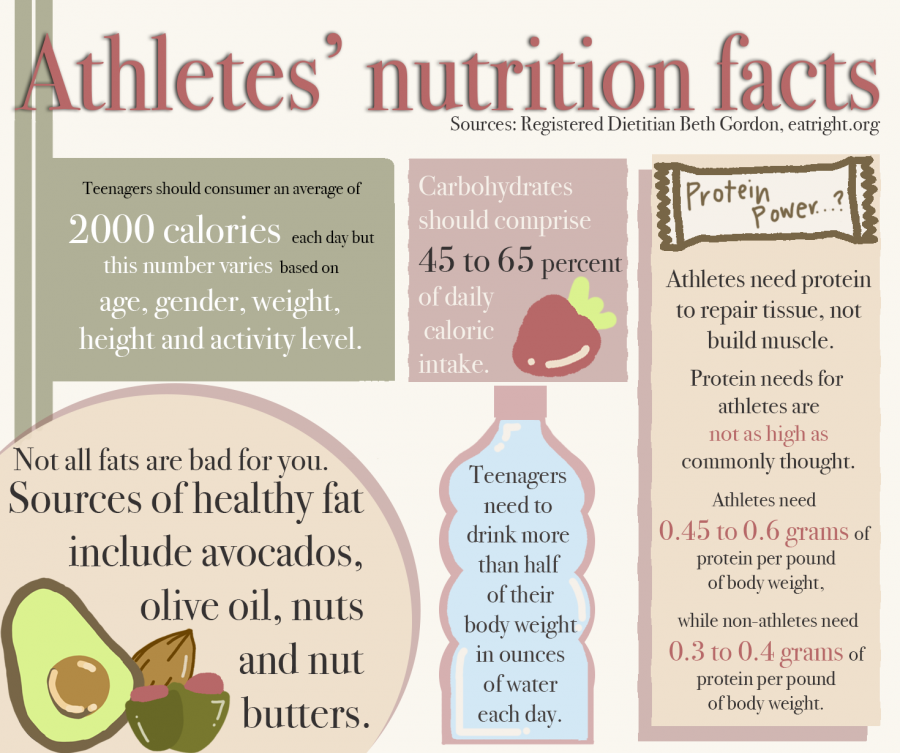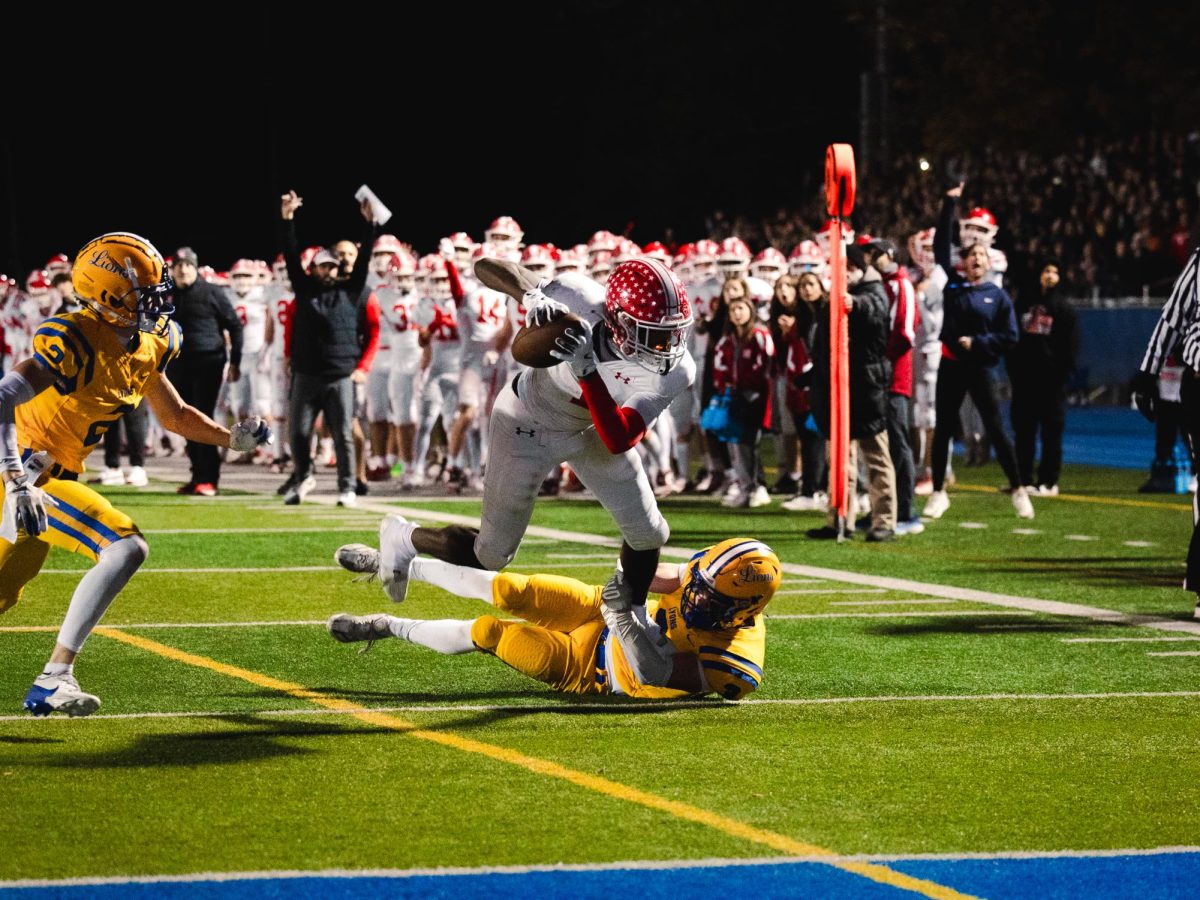Registered dietitian stresses importance of whole foods
March 30, 2019
Athletes’ nutrition has been a focus in sports, but real food has not been. Marketing companies such as Gatorade, Powerade and Muscle Milk promote that their products are beneficial to athletes. However, real whole food and plain water proves to be better for athletes’ bodies.
According to registered dietitian Beth Gordon, teens typically need 2,000 calories a day with some male athletes around 3,000 a day.
“It depends on if an athlete is male or female,” Gordon said. “It’s really individualized because it depends on their weight and activity. Athletes can know if they’re getting enough nutrition and calories if they’re able to maintain their growth while doing activities.”
While calorie counting is not encouraged in the teen population by pediatric dietitians, a good basis is three meals a day with different foods from all food groups and a couple snacks.
“We don’t recommend teens or adolescents to count calories because that can sometimes lead to other issues and be hyper focused on calories rather than total nutrition,” Gordon said.
Gordon recommends complex carbohydrates such as whole grain pasta and brown rice.
“It takes longer to break down and gives them long term energy for the sports activities and workouts,” Gordon said.
Additionally with many complex carbohydrates, the recommendation of lean protein and healthy fats is important to athletes’ diets. Some examples of healthy fats are avocados, nuts, nut butters and olive oil.
Physical education teacher Sarah Peterson coaches students in keeping a healthy lifestyle.
“Don’t deny your body fuel,” Peterson said. “You’ve got to fuel yourself healthily. It’s not saying avoid carbs it’s not saying eat all carbs, it’s each sport kind of varies with what [athletes’] bodies best needs and each person’s body changes. You find what works for you.”
Gordon explains her opinion on sports drinks and protein shakes.
“Most of the time athletes do not need gatorade or sports drinks unless they are getting dehydrated in summer activities or doing long runs. But most of the time, athletes can get by with drinking water. Generally teens can get enough protein from food. Most people think they need more protein than they actually need. If that’s something where their putting protein, fruits, and vegetables for a well-rounded meal that’s fine. But, I would recommend whole foods first.”
The minimum amount of hydration is half of a person’s body weight in ounces, but teens are recommended to get a little more. Athletes can assess their hydration by the color of their urine. It should be almost clear.
Senior and varsity diver, track-and-field, and gymnast Natalie Stephens shares her view on the importance of nutrition.
“Especially during track season as a runner, nutrition has a huge impact,” Stephens said. “When you’re running, it’s a direct correlation of what you put into your body gets put out when you’re running or racing.”
Senior and varsity wrestler Jackson Punzel shares the importance of incorporating cheat days in a healthy diet.
“I think it’s important to be on a diet and important to eat healthy,” Punzel said. “You have to fuel yourself for success, but if you keep a strict diet all the time, you’re going to get kind of burned out on it. If you’re able to incorporate a cheat day, I think that can help people a lot. Eat healthy, but don’t be afraid to have a cheat day.”








